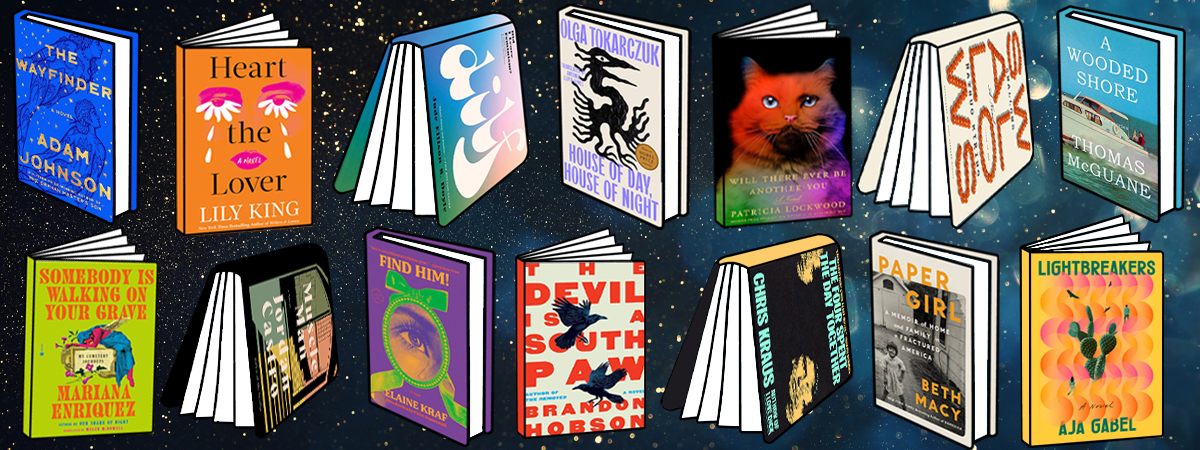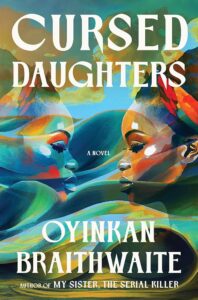November
Oyinkan Braithwaite, Cursed Daughters
Doubleday, November 4
At last, a new novel from the author of the almost unbearably fun My Sister, the Serial Killer. In Braithwaite’s latest, a young woman named Eniiyi is juggling two curses: the first being that she’s the incarnation of the cousin that died on the day Eniiyi was born (and therefore doomed), and the second being the family curse: “No man will call your house his home. And if they try, they will not have peace…” But when she falls in love, she will have to find a way to break both. –ET
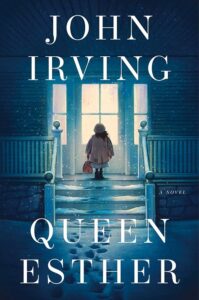
John Irving, Queen Esther
Simon & Schuster, November 4
John Irving’s The World According to Garp (1978), The Hotel New Hampshire (1981), and The Cider House Rules (1985), were extremely formative novels for me as a younger man, so much so that I’ve been afraid to return to them, here in my grizzled almost middle age, for fear of being disappointed. Happily, I reread New Hampshire for the first time in nearly two decades last year and found it to be every bit as moving and transporting as I remembered (if, naturally, a wee bit dated in parts). Irving remains one of the greatest living Dickensian novelists, and I will be first in line to pick up a copy of Queen Esther, a sequel (after 40 years!) to The Cider House Rules, in which beloved Maine orphanage doctor Wilbur Larch takes in Esther—a Viennese-born Jew whose life is shaped by anti-Semitism. –DS

Margaret Atwood, Book of Lives: A Memoir of Sorts
Doubleday, November 4
One of the most influential and important writers of her generation has finally written a memoir! (“Of sorts”? Peggy, what are you saying?). And not only does Atwood cover the arc of her 85 years, give or take, she makes explicit the connections between moments in her life and the art she has gifted us all. –JD
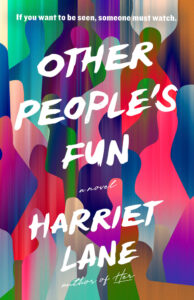
Harriet Lane, Other People’s Fun
Little, Brown, November 4
Single White Female is a genre unto itself. It can be adapted a thousand times a thousand ways and never lose its appeal; a dubiously platonic seduction, rapid intimacy, a slow but inexorable pivot toward something more sinister as the two main characters invade one another’s privacy until the notion that they’re two distinct people begins to wobble. Sign me up for it every time. –CK
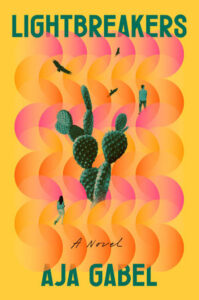
Aja Gabel, Lightbreakers
Riverhead, November 4
Aja Gabel’s follow-up to her acclaimed 2018 novel The Ensemble sounds absolutely fascinating. Lightbreakers is the story of Maya and Noah, an artist and a quantum physicist whose happy marriage is put to the test when an eccentric billionaire invites Noah to participate in a secret project, deep in the desert, to unravel the secrets of time and consciousness. Sinister labs. Time travel. Lost daughters. Old flames. Sign me up. –DS
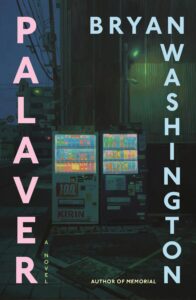
Bryan Washington, Palaver
FSG, November 4
Washington is almost sure to continue his exceptional run with this new novel—another intimate epic of food, family, and queer love. I love that he continues to return to similar locations (Tokyo, Houston) and ideas (see above), but that each time continues to feel fresh and vibrant and wonderfully human. I could read a hundred variations on these themes, especially when handled with the deftness that Washington brings. –DB
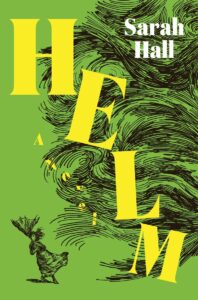
Sarah Hall, Helm
Mariner, November 4
Helm is a mix of environmental caution and myth, following a wind named Helm, “part-elemental god, part-aerial demon” that mischievously trips through history. Hall follows this trickster god from the Neolithic to the modern days, and how humans tried to placate and control this wind. This premise reminds me a bit of George R. Stewart’s Storm, but with a more folkloric spin: a creative way to examine how humanity and nature relate, and how all life is knotted together. –JF
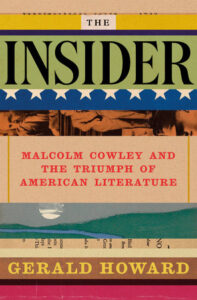
Gerald Howard, The Insider
Penguin Press, November 4
A book by a legendary editor about a legendary editor The Insider tells the story of Malcolm Cowley, the 20th century’s preeminent literary scenester. Cowley made his name in Paris as part of the Lost Generation, rubbing elbows with and championing the likes of Hemingway, Fitzgerald, and Dos Passos (an era he chronicles with wonderful panache in Exile’s Return); he would go on to be a literary presence both among the Beats and in the counterculture scene of the 60s, exerting his influence on American literature in a way hitherto unexplored. –JD
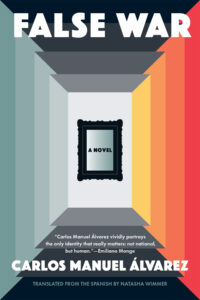
Carlos Manuel Álvarez, tr. Natasha Wimmer, False War
Graywolf, November 4
Carlos Manuel Álvarez is a tremendously exciting and engaged writer, and his fiction and essays never stray far from the world. His first novel The Fallen was a portrait of contemporary Cuba as seen by one crumbling family. It was beautifully dreamy and detailed, pairing acute political observations with a deep well of sympathy. His new book is more formally experimental, a fractured string of narratives and portraits moving across the globe—Cuba, Mexico, America, France, Germany—to meet ordinary and extraordinary barbers, thieves, and academics. I’m excited to see what he does with this looser form. –JF
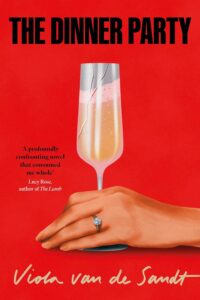
Viola van de Sandt, The Dinner Party
Little, Brown, November 4
Even under the best circumstances, hosting a dinner party is a stressful job. But hosting a dinner party for your family-money-wealthy English boyfriend and his colleagues during a heatwave when the fridge breaks, alcohol flows, and an unexpected guest shows up? That’s some new form of torture. It’s so fun when I get to yell “dump him!” at a book, and I think The Dinner Party will be a “dump him!” type of book. But it also sounds raw, compassionate, and compelling—what a beautiful world we live in where a book can be messy and tender all at once. –MC
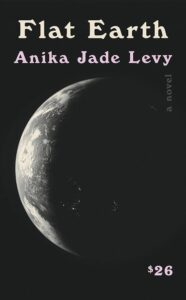
Anika Jade Levy, Flat Earth
Catapult, November 4
A new contender for the voice of Gen Z: Anika Levy’s debut novel Flat Earth will capture our attention, at least for as long as our warped attention spans will allow it. Conjuring the ennui that defines the current age, Levy tells the story of two friends, their sameness, and their differences: differences in class, in ambition, in success, in ability, and the desperation that can come from growing older, and being forced to face one’s own reality. No matter what changes in generations, no matter the specific difficulties that young people must contend with in the face of technology, war, politics, environmental devastation: nothing will change the heartbreak and fraught intimacy of female friendship in its ups and downs. –JH
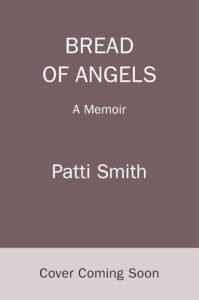
Patti Smith, Bread of Angels: A Memoir
Random House, November 4
Smith’s new memoir is pitched as a life-spanning look at her creative practice, from her childhood imaginings to her teenage poetry to her life with Fred “Sonic” Smith and through to the present. Fans of Just Kids and M Train can look forward to a return-to-form after the more experimental and elliptical Year of the Monkey and Book of Days. –DB
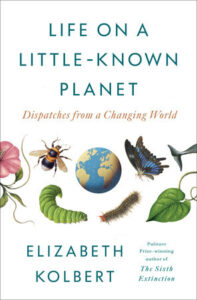
Elizabeth Kolbert, Life on a Little-Known Planet: Dispatches from a Changing World
Crown, November 4
Kolbert is one of our most important and lucid voices on climate change, and she’s been ringing the bell for longer than most. This book, which collects her “most important pieces about climate change and the natural world,” will be essential. –ET

Char Adams, Black-Owned: The Revolutionary Life of the Black Bookstore
Tiny Reparations Press, November 4
Char Adam’s book is not only a love letter to Black bookstores, but also a deeply reported history of their role in the history of Black political movements. A story at the intersection of literature and liberation, Black-Owned will be a must-read for anyone who believes in the power of books. –JG
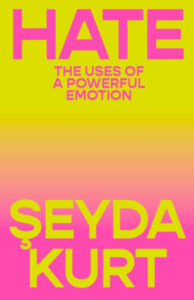
Şeyda Kurt, Hate: The Uses of a Powerful Emotion
Verso, November 4
Hate, you say? I know something about that, but probably not enough. In this international bestseller, Kurt argues for the productive side of this much-maligned emotion, and the way it can be used to fuel action, resistance, and perhaps even a new kind of care. Which is good, because these days I find I might need some help directing all these Bad Bad feelings. –ET
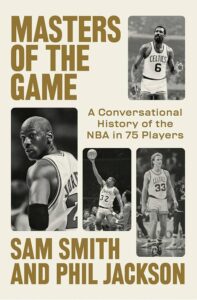
Sam Smith and Phil Jackson, Masters of the Game: A Conversational History of the NBA in 75 Players
Penguin Press, November 4
The NBA is unique among the professional sports popular in America because of its focus on individual guys. Baseball is about aggregate numbers and statistical aberrations; football is about simulating the violence and strategy of warfare; NBA basketball is about a handful of guys—no hats, no helmets, just dudes in shorts—defying the laws of physics for 48 minutes at a clip. Phil Jackson is both an NBA legend (first as a player, then as a coach and a front office executive) and a certified oddball. If he wants to share his thoughts on NBA history through the lens of “remembering some guys,” I’m going to listen. –CK
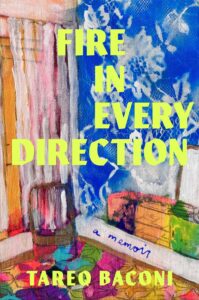
Tareq Baconi, Fire in Every Direction
Washington Square Press, November 4
Tareq Baconi—the brilliant Palestinian scholar, activist, and author of Hamas Contained: A History of Palestinian Resistance—has written a beautiful memoir of awakenings, both queer and political, chronicling the marks left by his family’s forced exiles (first from Palestine in 1948, and later from Beirut in the late 1970s) and his own reckoning with what it means to “live in liminal spaces, and rethink the meaning of home.”

Brad Fox, Another Bone-Swapping Event
Astra House, November 4
Sometimes a book’s title is sufficiently striking, and its subject—in this case, traditional medicine and the jungles of Peru—sufficiently unfamiliar to me, that it instantly lands a spot on my TBR. This is one of those times. –CK
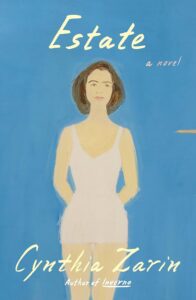
Cynthia Zarin, Estate
FSG, November 11
Estate is our second novel from Cynthia Zarin, who I knew first as a poet and essayist. All three forms—fiction, poetry, and essay—feel present in this sweeping reflection from a troubled heart. Following the recently separated Caroline as she falls into a stressful love with the charismatic Lorenzo, the book bounds around in our narrator’s memories, trying to pin down the problem of desire. Opening pages have me thinking of Annie Ernaux, Sigrid Nunez, or Deborah Levy—for the montage diary style, and frequent references to fellow women in crisis (Nina Simone, Ada Lovelace, icons of Italian cinema). –BA
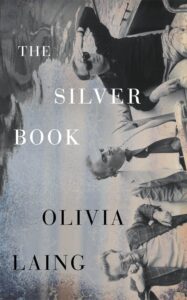
Olivia Laing, The Silver Book
FSG, November 11
I fell for Olivia Laing’s non-fiction first. They’ve made a hypnotic project of deep-reading artists in poetic group biographies like Funny Weather, and works of hybrid-memoir, like The Lonely City. At first I wasn’t sure that reporter’s gaze would cross the pond to fiction. But if Laing’s debut novel Crudo is anything to go by, that relentless curiosity drives a story as well as a remembrance. The Silver Book is set in the film world of 70s Venice, and enlists Pasolini and Fellini as characters. Pitched as a noir-ish queer love story, this one looks as sumptuous and specific as its predecessors. Can’t wait. –BA
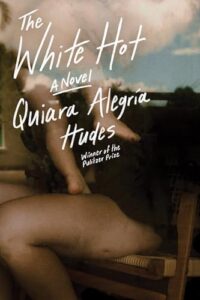
Quiara Alegria Hudes, The White Hot
One World, November 11
The debut novel from the Pulitzer-and-Tony-winning playwright is sure to be one of the hot fiction titles of the fall. It promises to be a journey of self-discovery, structured as a letter from a teen mother to her daughter, to be opened once the daughter turns 18—and I have no doubt that Hudes will deliver a gripping, beautiful, and poignant read in her turn to fiction. –DB
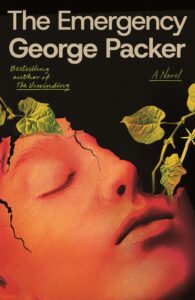
George Packer, The Emergency
FSG, November 11
The latest novel from Packer, who is renowned for his bestselling and award winning nonfiction, concerns a civilization that has “fallen apart from boredom,” which is interesting enough on its face, and the man who, after falling from grace in the new society, embarks on a dangerous redemption quest with his teenage daughter. Sounds good. –ET
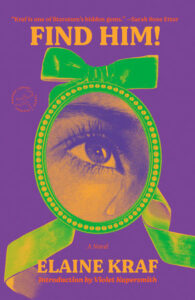
Elaine Kraf, Find Him!
Random House, November 11
Elaine Kraf’s work has mostly fallen out of print, with the exception of her cult feminist classic The Princess of 72nd Street that was reissued by Dalkey in 2020, and this new reprint of Kraf’s uncanny 1977 mystery is a much needed correction. Find Him!’s narrator claims to be from “another star,” arriving without the ability to care for herself or speak. A man named Oliver tends to her, and his role is confusing: he’s a caretaker, a lover, a teacher, and a captor. The narrator’s live gets more complicated as she gains more autonomy and as she starts reexamining her life. It’s a powerfully eerie book, and one I’m glad will be finding a wider readership. –JF
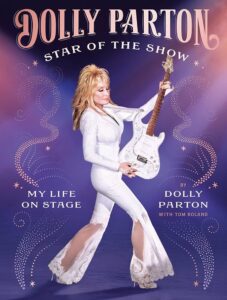
Dolly Parton, Star of the Show: My Life on Stage
Ten Speed Press, November 11
Let’s be real. I don’t have to sell you on Dolly Parton. America’s sweetheart doesn’t need any more good press from anyone—I’d bet my fortune that she could be elected Queen of Tennessee, Constitution-be-darned, if elections were held today. The third installment of her deluxe photo-biography arrives this autumn. And where the previous two books focused on lyrics and fashion, Star of the Show takes general appraisal of Parton’s, well, starriness. I’m expecting juicy backstage anecdotes and sweet-tea-sweet wisdom in this well-earned victory lap. –BA
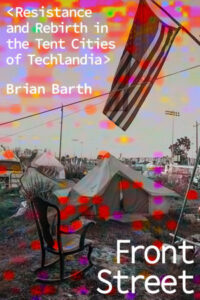
Brian Barth, Front Street: Resistance and Rebirth in the Tent Cities of Techlandia
Astra House, November 11
It’s certainly no secret that an incredible hostility against unhoused people exists in the United States. Accounts that not only explore how our system has failed its people but also humanize our neighbors and comrades as they organize and support one another are so important, particularly against the backdrop of Silicon Valley. –OS

Daniel Swift, The Dream Factory: London’s First Playhouse and the Making of William Shakespeare
FSG, November 11
Getting into the weeds about the material conditions under which Shakespeare wrote the majority of his work is interesting enough to warrant a mention on this list. As a companion to Stephen Greenblatt’s Dark Renaissance, which dives into the very different ways Christopher Marlowe (probably) made his living, this summer promises to be bountiful for those of us prone to droning on about the historical context of classic literature. –CK

Jen Percy, Girls Play Dead: Acts of Self-Preservation
Doubleday, November 11
Jen Percy’s reporting about war, trauma, addiction, and extremism is some of the best around. Her 2016 piece about the loved ones of those lost in Japan’s tsunami who continue to search for them at sea is one of the most profoundly moving pieces of writing about grief I’ve ever encountered. I’m anxiously awaiting her second book, on passivity and women’s survival strategies. –JG, as recommended in our first-half of 2025 list
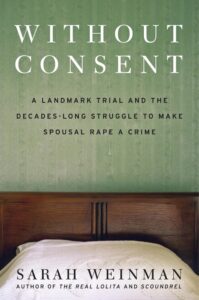
Sarah Weinman, Without Consent: A Landmark Trial and the Decades-Long Struggle to Make Spousal Rape a Crime
Ecco, November 11
The NYTBR’s mystery & crime columnist returns with another work of reported non-fiction, tracking the progress (all too recent, all too little) of making spousal rape into a crime, starting with the first attempted lawsuit in 1978 through the present. It’s a shattering reminder that for all the progress we’ve made, this country’s deeply engrained history of misogyny and violence continues to prove a danger to us all. –DB
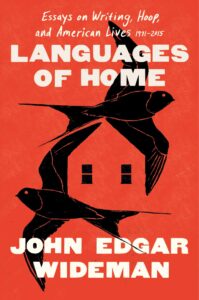
John Edgar Wideman, Languages of Home: Essays on Writing, Hoop, and American Lives 1971-2024
Scribner, November 18
I’m ashamed to report to you, good literary establishment, that I’ve never read any John Edgar Wideman. He’s one of those writers I’ve weirdly circled for years, collecting his novels and letting them linger in my TBR pile for no particular reason. I know he’s a peer or mentor to many authors I adore, and I know he always comes off lovely in interviews. But for whatever reason, the stars haven’t aligned for us yet. But I think that ends this fall.
This year, we’re getting a first of its kind collection of Wideman’s essays and criticism. The book will span fifty years and dozens of subjects. Expect the novelist’s hot takes on everything and body from Michael Jordan to the end of the Civil Rights Movement. I love this kind of roving introduction to a mind, so sign me up. –BA
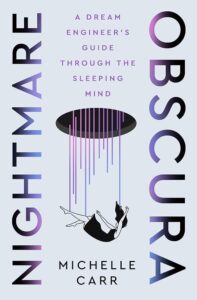
Michelle Carr, Nightmare Obscura: A Dream Engineer’s Guide Through the Sleeping Mind
Henry Holt, November 18
A book about the science behind dreams sounds like a, uh, dream for writers (poets, I’m looking at you). In Nightmare Obscura, dream researcher Michelle Carr dives into the mechanisms of dreams and nightmares, and explores the relationship between our sleeping and waking minds. Granted, I don’t actually know what dream engineering is, but my interest is piqued. –JG
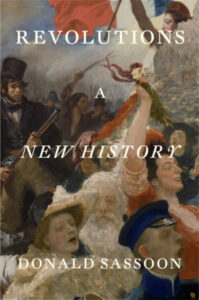
Donald Sassoon, Revolutions: A New History
Verso, November 18
A big book on a big idea: what is revolution? Sassoon reexamines some of the most famous political upheavals in history, from England, America, France, Italy, Russia, and Germany, taking on the topic of revolution from many angles and historical moments. Sasson is able to work on a grand scale, and he’s not afraid to take big swings with his analysis. But I wouldn’t be scared off if you’re not a fan of academia: he also has an excellent eye for sparkling anecdotes and character sketches. The details highlight the rich ironies and contingencies of history, which are always present in Sassoon’s work. –JF
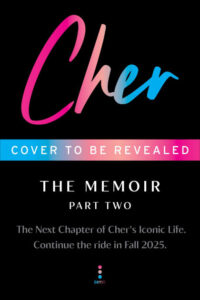
Cher, Cher: Part Two
Dey Street, November 18
The second installment of Cher’s memoir ought will scratch your itch (or mine, anyway) for juicy celebrity storytelling. Of course, I’ll be ingesting it in audiobook version to get the full Cher experience. My house is about to be so clean. –JG

Tracy K. Smith, Fear Less: Poetry in Perilous Times
Norton, November 18
Pulitzer Prize-winning poet laureate Tracy K. Smith, one of my personal favorites, is blessing us with a volume about reading and writing poetry—in “perilous times” and otherwise (though one might argue all times are perilous). It contains discussions of craft and Smith’s own personal practice, close readings, and a argument for poetry as both a bridge to others and a way of understanding ourselves. She’s brilliant; I will be reading. –ET
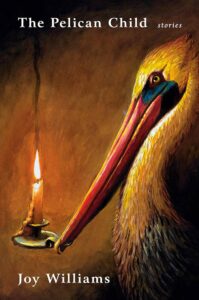
Joy Williams, The Pelican Child: Stories
Knopf, November 18
There’s nobody quite like Joy Williams. No one is as funny and as bleak in the same sentence, or maybe even the same word. Her latest is a collection filled with characters who, according to the tin, “insist on exploring, often at their peril, an indifferent and caustic world: they struggle against our degradation of the climate, of each other, and of honest human experience…possibly in vain.” Relatable. –ET
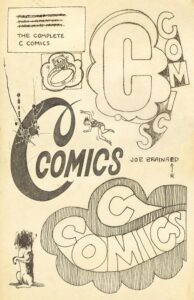
Joe Brainard, The Complete C Comics
NYRB, November 18
In the ’60s, writer and artist Joe Brainard collaborated with some of his friends—friends like Frank O’Hara, Ted Berrigan, John Ashbery, Kenneth Koch, Peter Schjeldahl, Anne Waldman, and Ron Padgett—to collaborate with him on comic strips. They wrote; he drew. These were more or less lost to time until now, when they have been collected for all in an accessible volume that comes complete with a foreword from Padgett and an essay by comics historian Bill Kartalopolous. Cool. –ET
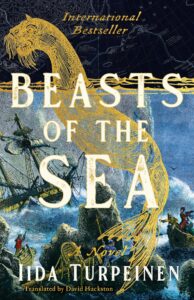
Iida Turpeinen, Beasts of the Sea
Little, Brown, November 18
A centuries-spanning epic about our relationship to the natural world centered around a fascinating marine mammal? Yes, please! Beasts of the Sea is a novel set over the course of three centuries that tracks the relationship between humans and the now-extinct Steller’s sea cow. It’s also about the legacy of so-called “discovery,” the cost of progress, and the ways the world does—and doesn’t—change. I love historical novels that grapple with very specific and underrepresented parts of history (sorry to historical fiction about, like, “the war”), so I’m really looking forward to this detailed, thoughtful novel. –MC
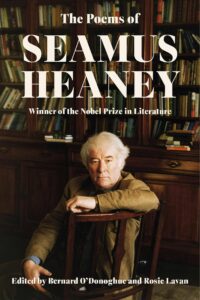
Seamus Heaney, ed. Bernard O’Donoghue and Rosie Lavan, The Poems of Seamus Heaney
FSG, November 18
I learned to love poetry through studying Seamus Heaney and Emily Dickinson side by side in school, so I’ll always have a soft spot for Heaney’s work. I also love a poetry collection that’s also a doorstopper? There’s something (delightfully) ridiculous about owning such an enormous book of verse. –OS
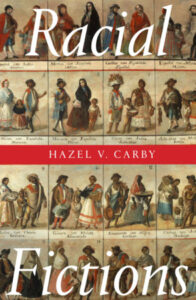
Hazel V. Carby, Racial Fictions
Verso, November 25
Carby’s historical memoir, Imperial Intimacies: A Tale of Two Islands, really blew my mind last year. This fall, the formidable African American Studies scholar has another genre-twisting exploration coming for an indie shelf near you. A work of theory, history, and criticism, Racial Fictions situates domestic American “racial struggles” in a global context, invoking the long arm of colonialism and picking up a Black intellectual tradition right where DuBois left off. A sure-to-be engaging work from one of our best thinkers. –BA

